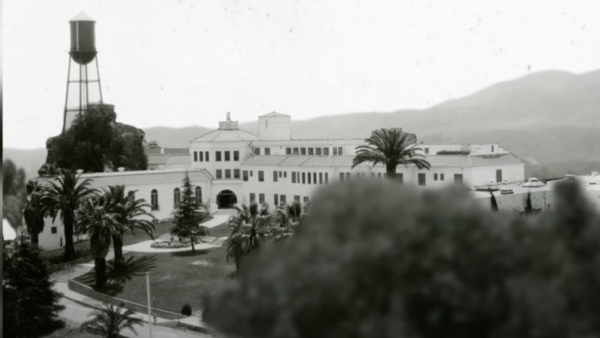Loma Linda University School of Public Health Celebrates Its 60th Anniversary
Institution continues to prepare future leaders to make a lasting impact, its leaders said.
October 6, 2024 | Loma Linda, California, United States | Summer Clark, Loma Linda University Health, and Adventist Review
For 60 years, Loma Linda University School of Public Health has worked to protect and improve the health of communities locally and globally. From leading research for the Adventist Health Study beginning in 1974 to conducting a Health Expo in Zimbabwe in 2017, the School of Public Health has been preparing future leaders to make a lasting impact.
Adam Aréchiga, dean of the School of Public Health, brings a unique perspective to his role, having once been a student at the school himself. He graduated with a doctorate in public health in 2006, embodying the school’s mission of nurturing the next generation of public health leaders.

Nichol Hall on the School of Public Health Campus at Loma Linda University. [Photo: Loma Linda University Health]
The School of Public Health’s rich history dates to September 1, 1964, when it became California’s third public health school. In 1967, the school became fully accredited by the Executive Board of the American Public Health Association, which granted full accreditation. The school offered four majors: Tropical Health, Public Health Education, Public Health Nutrition, and Public Health Administration.
The School of Public Health conducted the first Adventist Health Study, mailing 63,530 census questionnaires, one to every Adventist household in California, to explore the links between lifestyle, diet, and disease among Adventists.
“I am very proud of our legacy,” Aréchiga added. “The Adventist Health Study was a big contribution, and it has changed the science of nutrition in this country. I am proud to be a graduate of a school that did that.”
Joan Sabaté, alumnus and professor of nutrition and epidemiology, started at the school 40 years ago, graduating in 1987 with a Master of Public Health degree and a Doctor of Public Health in 1989. After finishing his post-doctorate work in 1990 and receiving a research grant from the California Walnut Commission, Sabaté was offered an assistant professor of epidemiology position at the school. This led him to conduct groundbreaking research establishing the link between walnut consumption and protection from heart disease, later published in the New England Journal of Medicine in 1993. In 2020, he was named to the Dietary Guidelines Advisory Committee, a committee of the US Department of Agriculture.
“I have devoted my entire professional career to Loma Linda University School of Public Health, and the diverse array of experienced professionals here has been a tremendous source of personal enrichment,” Sabaté said. “We’ve demonstrated the vital role of nutrition, proving that others can achieve similar impacts by excelling as educators, researchers, and communicators.”
Today, the LLU School of Public Health continues its commitment to cutting-edge research and local community outreach. Current studies include the mango cardiometabolic study, peanut immune study, weight loss management study, and more. The school recently received a three-year, US$1.5 million grant from the US Health Resources and Services Administration to provide scholarships to local Inland Southern California public health agency employees.
Over the years, the school has continually strived to improve health, spread hope, and promote wholeness, its leaders said. “As it celebrates its 60th anniversary, Loma Linda University School of Public Health proudly looks forward as it educates the next generation of public health professionals and conducts research that will shape the future of global health.”
The original version of this story was posted on the Loma Linda University Health news site.